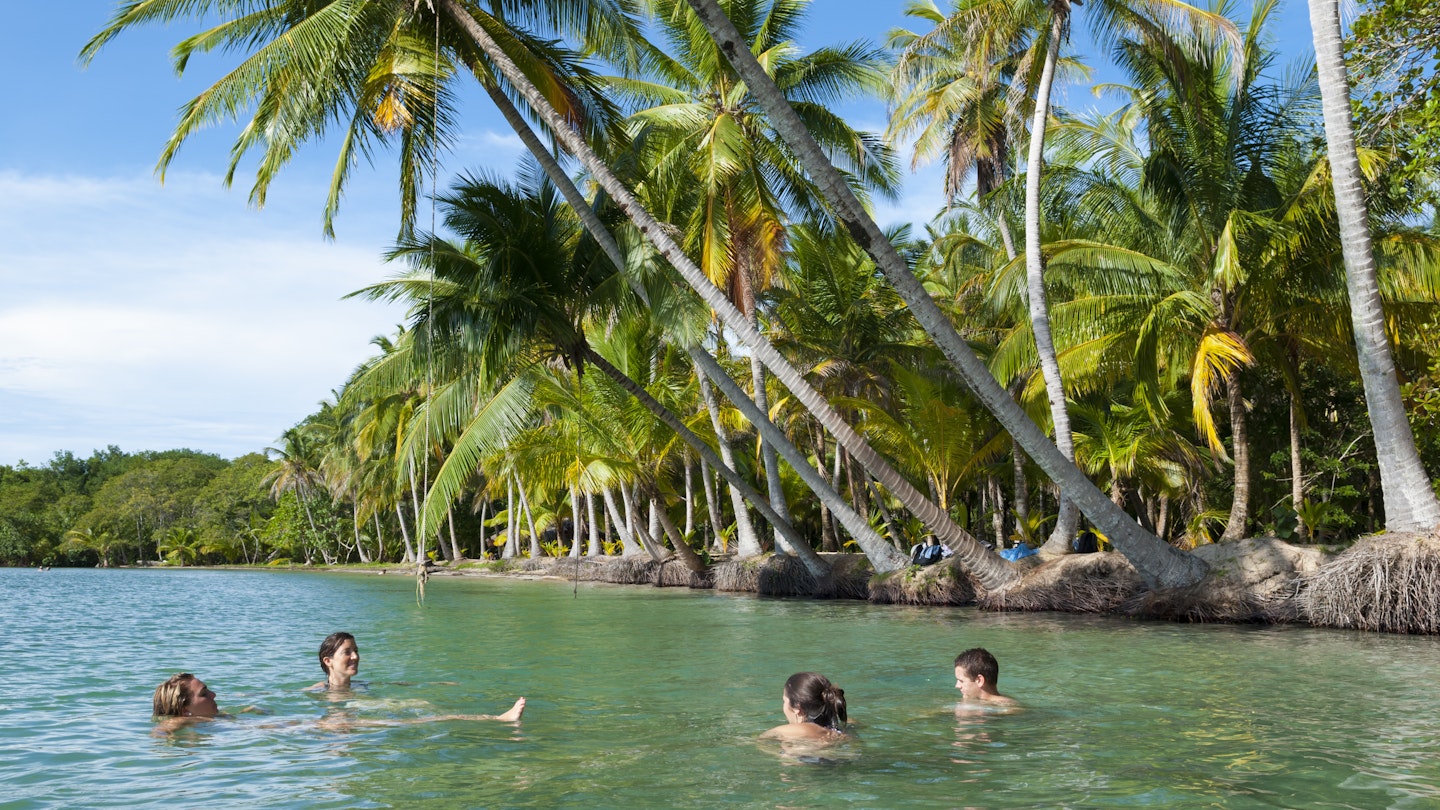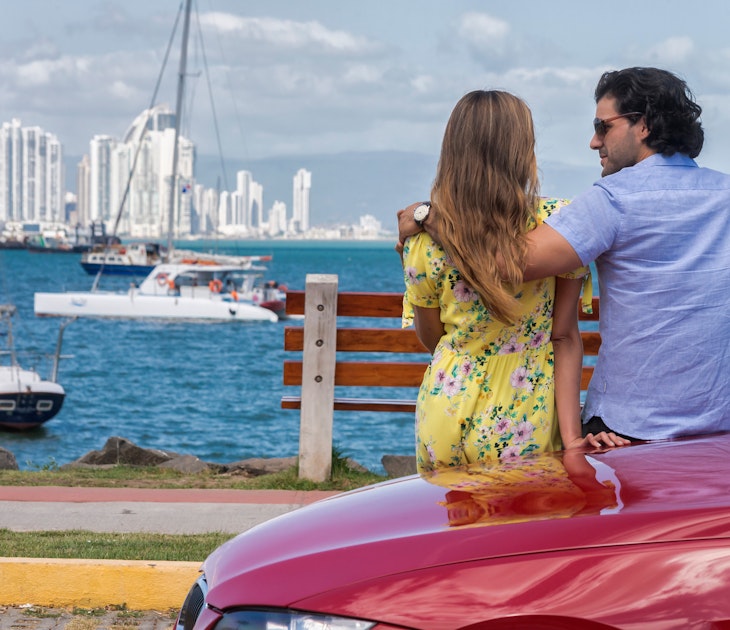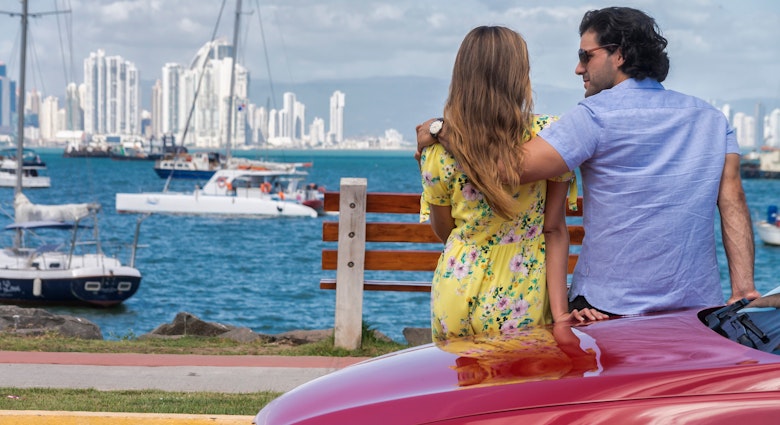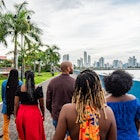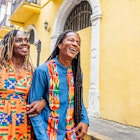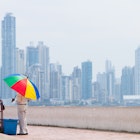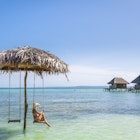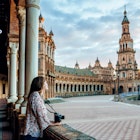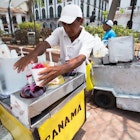Panama City is a fast-paced urban dynamo that’s quickly becoming a Central American powerhouse.
The city’s spruced-up historic quarter of Casco Antiguo invites endless strolling while soaring skyscrapers overlook the Pacific and the so-called banking district is a hive of buzzing restaurants, luxury shopping malls and nightclubs. But with pristine nature and sunny beaches on your doorstep, why confine yourself to a busy city?
The isthmus is compact enough that you can sample the rainforests, ocean and mountains in a single day. The national parks in the Panama Canal watershed are alive with biodiversity – a marked contrast to the concrete jungles of the capital.
Breezy beaches pepper the coastline west of the city, offering respite from its relentless heat and grind. The Caribbean Coast, rich in tropical vegetation and buccaneering history, is just an hour away.
Here’s our guide to the best day trips from Panama City.
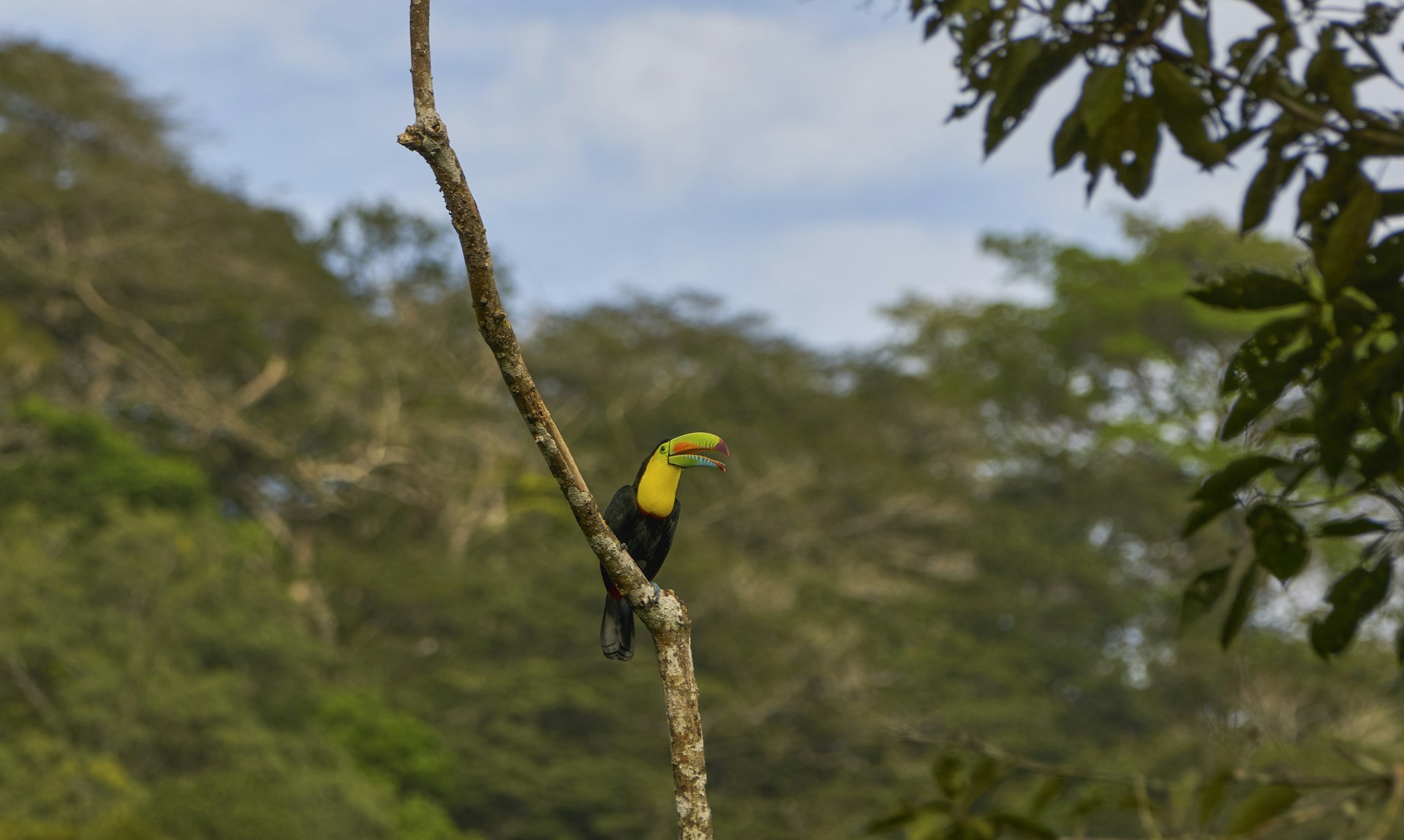
Encounter neotropical fauna at Soberanía National Park
Dense tracts of luxuriant rainforest consume the Panama Canal Watershed, draining the vast quantities of water needed for the canal’s day-to-day functioning. Parque Nacional Soberanía is one of several national parks within reach of the capital. Soberanía, in particular, is 27km (17 miles) from Panama City.
The central component of a biological corridor spans the entire isthmus from Panama City to Colón on the Caribbean coast. The 223-sq-km (86-sq-mile) tropical wonderland brims with nature. The park’s 17km-long Pipeline Trail (11 miles) is legendary among birdwatchers – 385 avian species were spotted here in a single day in 1985.
Around 1.6 km (1 mile) from the pipeline trailhead is the Panama Rainforest Discovery Center – an ecological education facility with buzzing hummingbird feeders and a 32m-high observation tower (172 steps) with superb views over the jungle canopy.
How to get there: Public transport to Soberanía National Park is infrequent and unreliable. It’s best to drive, go with a tour group or take a taxi. It takes less than 40 minutes to reach the park. Access the Pipeline Trail from the port of Gamboa on the banks of the Chagres River. To get there, follow Avenida Omar Torrijos, which runs parallel to the canal, to its conclusion.
Enjoy refreshing Pacific breezes on Taboga Island
Festooned with pink and purple bougainvillea, the Pacific retreat of Taboga—“the Island of Flowers”—was a favorite of the French artist Paul Gaugin, who nearly settled here in 1887. The best way to get here is to take a ferry.
Taboga has a hot, soporific, Mediterranean atmosphere where rambling streets and white-washed houses punctuate the tiny village.
The Iglesia de San Pedro on the main plaza is the second-oldest church in the western hemisphere. There are pleasant, though unspectacular, beaches on Taboga, like Playa Restinga, located about 150m (492ft) north of the main pier.
At low tide, a small spit of sand connects the beach to the Isla of El Morro. You can snorkel here or at caves on the other side of the island. A fisherman can take you for US$20 to $30.
Around a third of the island is a refuge for brown pelicans, and thousands nest in the hills from January to June. If you have the energy to hike, trails lead to the summits of Cerro Vigia and Cerro de la Cruz.
How to get there: Isla Taboga is located 20km (12 miles) offshore. Ferries depart several times a day from the Amador Causeway in Panama City.
Panama’s best islands: our guide to finding a piece of paradise
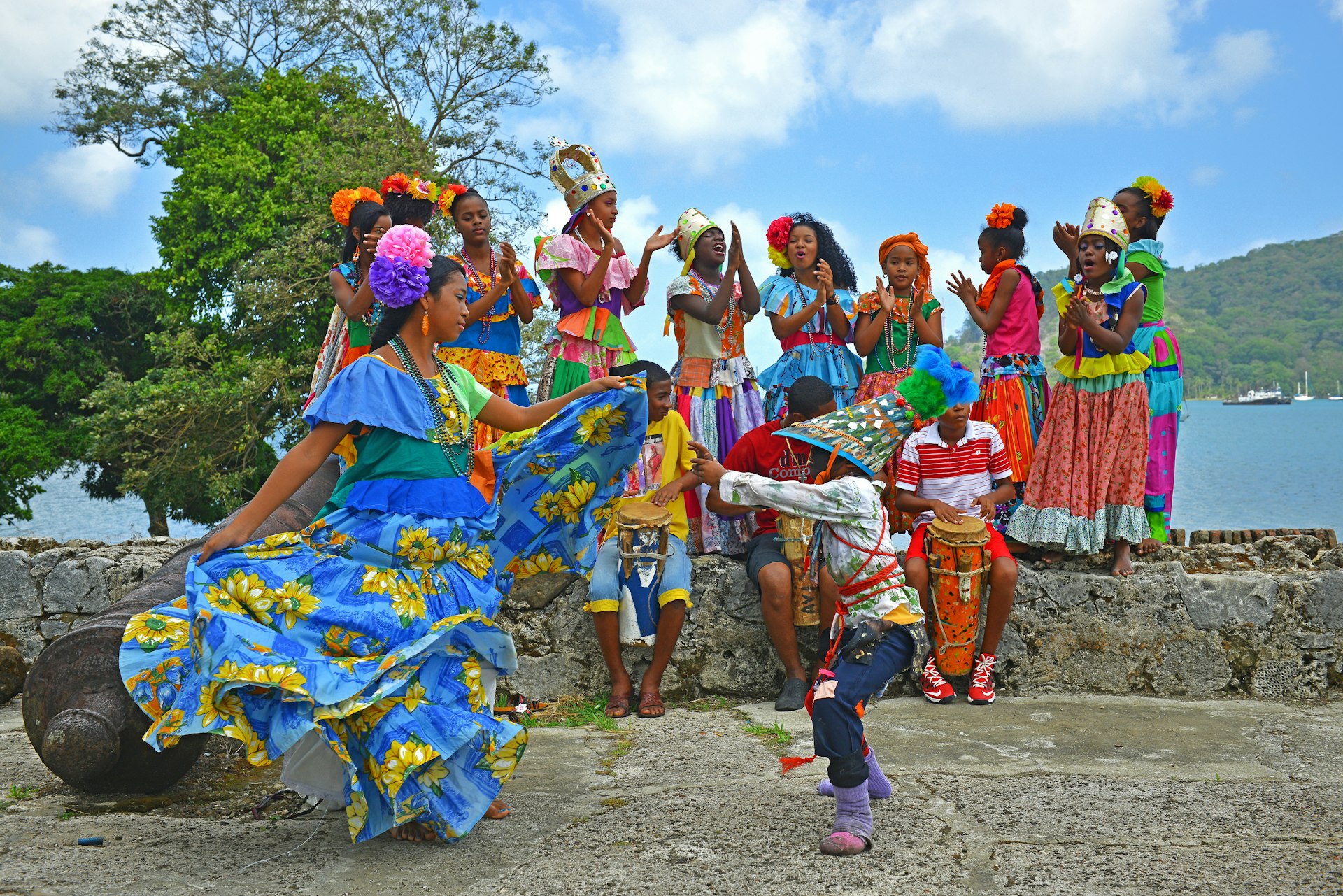
Learn Afro-Panamanian history in Portobelo
Nearly two hours from Panama City, Costa Arriba, located on the northeast side of the country, is a verdant stretch of Caribbean shoreline alive with African history and culture.
Its geographic and spiritual heart is the village of Portobelo. Sleepy most of the year, the tiny fishing town swells with activity during the Festival of the Black Christ (Festival del Cristo Negro). The event takes place on October 21 and draws around 50,000 pilgrims from all over the country and beyond. The festival honors a 1.5m-high Black Christ statue (5ft) found in the Iglesia de San Felipe.
Portobelo is also the site of the biannual Festival Diablos y Congos. The raucous and colorful celebration, held in late February or early March, mocks slavery while celebrating the emancipation of the enslaved. It’s a tradition that dates back hundreds of years.
To get there: Buses to Colón depart every 15 to 30 minutes from Panama City and cross the isthmus in about an hour. Colón experiences high crime rates and is usually unsafe for tourists. If you’re visiting Portobelo, you can skip the city entirely as eastbound buses connect with Portobelo via Sabanitas – ask the driver to let you out at the turning. The entire journey from Panama City to Portobelo takes around 2 to 3 hours by bus.
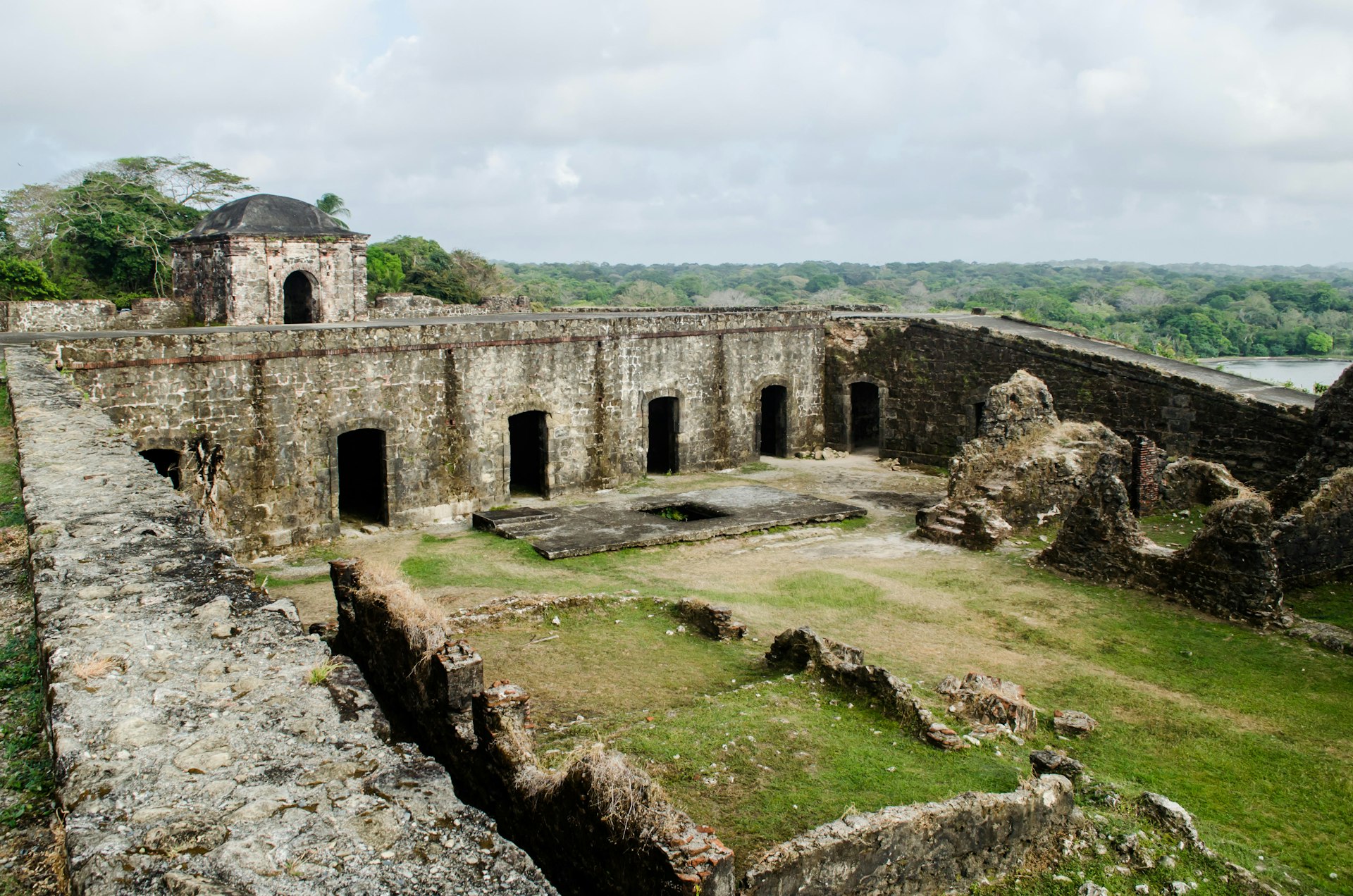
Peek into the past with a visit to Fuerte San Lorenzo
About an hour-and-a-half drive north of Panama City is Fuerte San Lorenzo – one of the oldest and best-preserved Spanish fortifications in the Americas.
Perched on a clifftop promontory overlooking the Caribbean Sea, San Lorenzo was built to protect the Camino de Cruces. This transisthmian trade route connected Caribbean shipping lanes with Panama City via the Chagres River.
After exploring the fort, it’s about a 40-minute drive to the Gatún and Agua Clara locks on the Panama Canal. Head to the viewing stand at the Agua Clara Visitors Center to see the super big boys (think Titanic) pass through the locks.
Getting there: Driving is the only way to get to San Lorenzo, and the Panama Canal locks of Gatún and Agua Clara. Take Rte 9 to get to San Lorenzo, and Puente Atlantico to reach the Agua Clara Visitor Center. There’s no public transport to San Lorenzo or the locks.
Enjoy the wildlife at Monumento Isla Barro Colorado
Shrouded in jungle, Gatún Lake is a 442-sq-km (171-sq-mile) fresh-water reservoir and an integral section of the Panama Canal. To create it, engineers constructed enormous dams that diverted the course of the Chagres River and reshaped the biogeography of central Panama.
The flood waters slowly submerged the forests, forcing animals to flee. Some reached higher ground, some drowned and others were stranded on an archipelago of newly formed islands.
The largest and most-visited island is Barro Colorado and home to a world-leading biological research station – the Smithsonian Tropical Research Institute (STRI) – since 1946.
The island’s tropical forests are one of the most intensively studied on the planet. A cavalcade of visiting researchers and students live on the island to gather data on local biodiversity. Day visits to Barro Colorado include a strenuous hike with a multi-lingual naturalist who explains the ecology of the forest and the history of the research center.
Getting there: Visits to Barro Colorado are strictly controlled. If possible, try to book several weeks in advance through the STRI website. Early morning boats to the island depart from the docks at Gamboa (about a 40-minute drive from Panama City) and return in the afternoon. The boat won’t wait if you’re late, and don’t turn up at the docks without a reservation. An entire trip takes from seven to nine hours.
The 10 best beaches in Panama for big swells and secluded escapes
Frolick on the beaches of the Pacific Coast
The Pacific Coast is the preferred getaway for Panama City weekenders. West of the capital, the string of low-key beach communities overlooking the ocean is ideal for recuperating.
Traveling west on the Pan-American Highway, the first place you should go is Punta Chame (not to be confused with the town of Chame) – a windswept peninsula with a desolate beach and a budding kite-surfing scene. From December to May, wind speeds average 15 to 25 knots, perfect for lift.
About 45 minutes from Punta Chame is Playa Coronado. A popular destination for ex-pats from Canada and the US, Playa Coronado has a golf course, resort and shopping mall.
A 20-minute drive on the Pan-American takes you to the surfing hubs of El Palmar and Río Mar.
Getting there: It’s about a two-hour drive from Panama City to Punta Chame on the Pan-American. You’ll pass the townships of Arraiján and La Chorrera before reaching the Pacific Coast. The turn to Punta Chame is just before Bejuco. If bussing, westbound services depart every few minutes from Albrook bus station – just holler when you pass your stop on the Pan-American. Note that some beaches are connected to the highway by a long access road, requiring a taxi.

